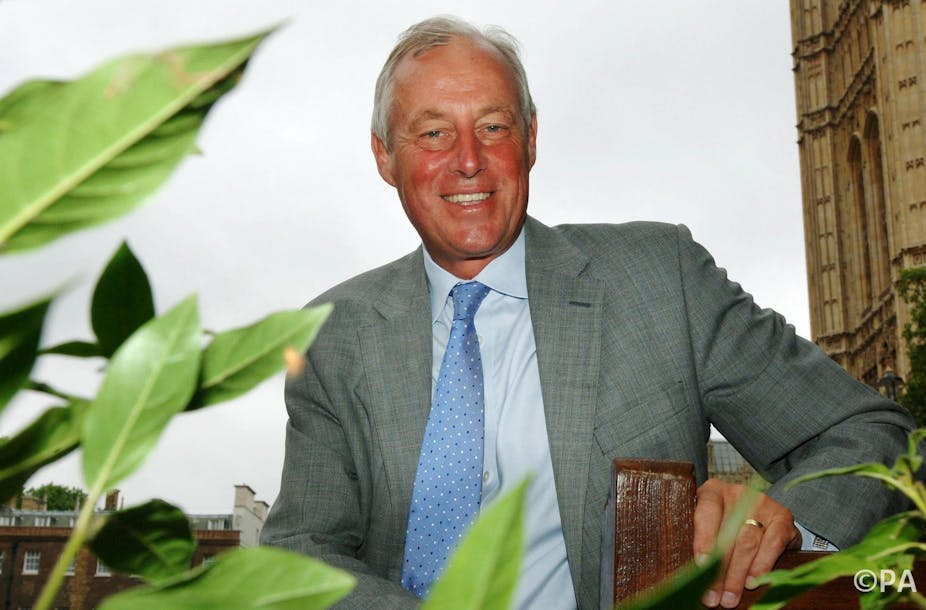The scandal brewing around Conservative MP Tim Yeo, who stood down from the government’s climate committee amid lobbying claims this week, certainly raises questions about the relationship between energy companies and Britain’s energy strategy. But this story could also be seen as a dangerous distraction from the important policies over which the climate change committee presides.
In recent years, several news articles have pointed to the connection between energy companies and senior politicians or civil servants. Such stories have given details of meetings in “luxurious” restaurants between senior civil servants and nuclear industry lobbyists. And they have shown far higher numbers of meetings between treasury officials and those in energy-intensive sectors than those within the green sector.
The latest story arose from a sting operation by The Sunday Times, in which Yeo was accused of breaching parliamentary rules. It is claimed he “coached” an executive from a firm he worked for on what to say when giving evidence to the climate change committee. Yeo fiercely denies the allegations and has temporally stepped down from the committee in order to clear his name.
This leaves only one Conservative MP on the committee, Peter Lilley, who is well known for his sceptical views on climate matters. Though it was rumoured that Lilley would take over as chair of the committee, Lib Dem MP Sir Robert Smith has since been named as Yeo’s successor. Both of these MPs’ connections with energy firms have subsequently been highlighted in the press.
These news stories raise clear concerns about energy companies and the lobbying of MPs and senior civil servants to act in their interests, rather than the interests of the wider public.
Current research suggests that policy is very much influenced by lobbyists. For example, a recent publication in the journal Energy Policy demonstrates how the design of the European Union directive, which establishes a framework for greenhouse gas emissions trading, was clearly influenced by dominant interest groups in the energy industry.
The researchers highlight the significant impact of industrial interest groups, compared with the minor impact of environmental interest groups. They go on to show how the electricity sector, in particular, was successful in lobbying and achieving an outcome that largely supported their interests.
Lobbying is a common and fundamental part of the policy making process at all levels of government, yet little is known about these practices among the wider public. All this suggests a clear need for greater scrutiny of the activities of government and energy firms, and better efforts at ensuring transparency. This is particularly true if we consider the potential impact of lobbying scandals on public views.
Research undertaken in the US reveals that the state of political debate was the most important factor that influenced public views on climate change.
In the UK, a recent UK Energy Research Centre study examining public engagement with energy system change highlights low levels of public trust in politicians and energy companies to deliver transitions to low-carbon electricity. This research undertaken by Cardiff University points to the significance not only of policies, but also the actions of high-profile politicians in influencing public views in this regard.
There is an urgent need to improve trust if we are to engage members of the public with the UK’s energy challenges. The reporting of this most recent set of issues could have been an opportunity for detailed engagement with concerns around energy lobbying and the implications for public trust.
As it stands, the brewing scandal around Yeo is likely to further damage the already troubled relationship between the wider public, government, and energy companies; an outcome that does little to address lobbying issues and even less to begin the necessary journey toward rebuilding trust.

